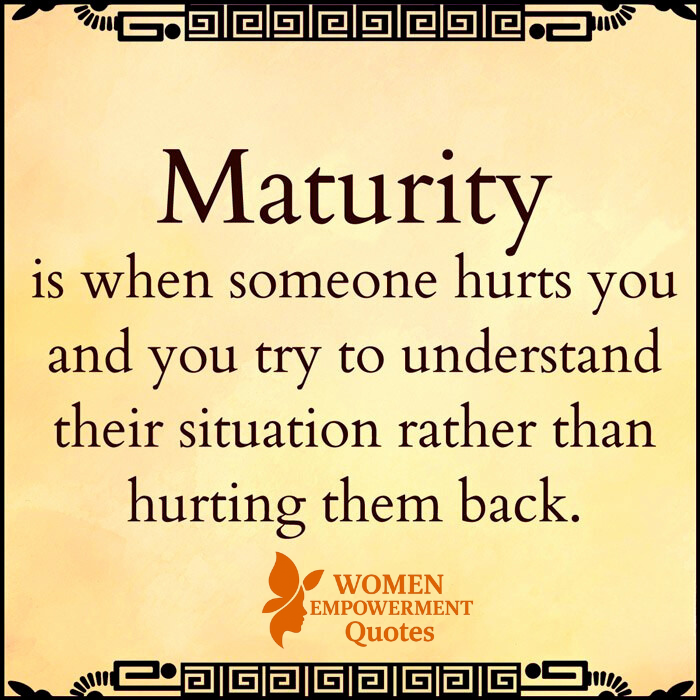
True emotional maturity isn’t about being right or winning—it’s about choosing understanding over retaliation when someone causes us pain. Life will bring moments where people hurt us, whether intentionally or unintentionally. In these moments, our natural instinct may be to react in anger or shut ourselves off. But there’s a deeper path: the decision to pause, reflect, and respond with compassion instead of revenge.
Maturity begins when we stop seeing the hurt solely through our pain and start asking: Why did they act this way? Often, people lash out because they themselves are hurting. They may be burdened by stress, fear, past trauma, or emotional wounds they haven’t healed. This doesn’t excuse their actions—but it helps us understand them as flawed, struggling human beings, just like us.
To respond with empathy in these moments is not weakness. In fact, it requires remarkable strength. It takes self-control to resist the urge to retaliate. It takes courage to stay open-hearted when all we want is to protect ourselves. Yet it’s in this choice that we show the depth of our emotional growth.
Understanding also opens a door to healing—not just for the other person, but for ourselves. When we let go of resentment, we release the emotional weight that holds us back. We make space for peace, for clarity, and for the possibility of reconciliation.
But this kind of understanding doesn’t come by accident—it comes through the ongoing work of self-awareness. Emotional maturity is rooted in our ability to know ourselves: to recognize our own patterns, triggers, and the stories we tell ourselves about others. It’s about being honest with our feelings, even when they’re uncomfortable.
Practices like mindfulness can help us tune into our thoughts without judgment, giving us the space to respond rather than react. And feedback from people we trust can be a mirror that helps us grow in areas we might not see clearly on our own.
As we develop this inner awareness, we gain more control over how we handle conflict. We become less reactive and more reflective. And in that, we become more compassionate—not only to others, but to ourselves.
Ultimately, maturity isn’t about never getting hurt. It’s about how we choose to respond when we do. It’s in the quiet decision to understand rather than attack, to seek peace rather than control. And it’s in these moments that we become not just emotionally intelligent—but truly wise.
Related Quotes:
“The weak can never forgive. Forgiveness is the attribute of the strong.” – Mahatma Gandhi
“There is nobility in compassion, a beauty in empathy, a grace in forgiveness.” – John Connolly
“The wise forgive, but do not forget.” – Thomas Szasz
“Always forgive your enemies; nothing annoys them so much.” – Oscar Wilde
Write Your Prayer